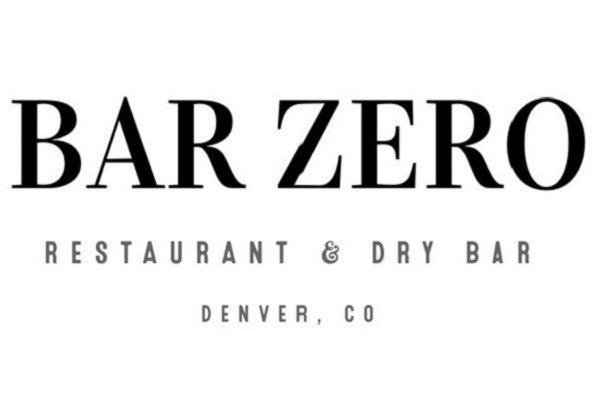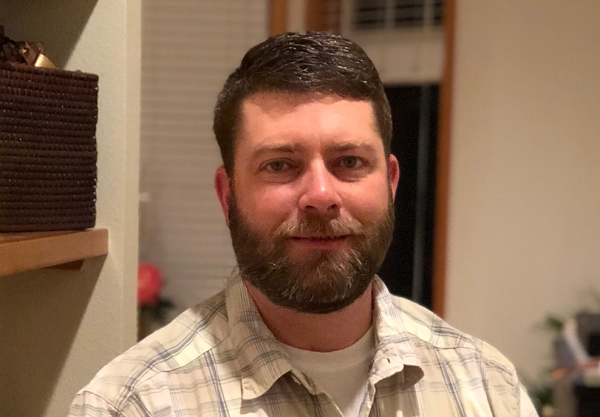The Recovery of Craig K.




Monday morning is a stressful time for many people. Anxiety about work or a depressed mood are not beneficial for anybody but they can be dangerous relapse triggers for people in recovery from addiction.
One way to deal with the Monday blues is to confront it head-on and make a virtue of it. Michael Arnold is the director of alumni and recovery support services at Harmony Foundation. She has found an engaging way to help people in recovery snap out of any dark moods they may be experiencing.
In May, Michael started a podcast called “Monday State of Mind” to give the recovery community a positive start into the workweek. Her sheer boundless enthusiasm alone will cheer up your Monday—or any other day for that matter. “I know the good that happens when I choose to be consciously aware of my state of mind,” explained the woman known as the “Hurricane of Happiness” in episode one. An alumna of Harmony herself, Michael continues to use the tools that were given to her while she was there as a client.
The fuel behind “Monday State of Mind” is her intense desire to “recover out loud” and in the process help others in the same situation. “ At Harmony, I get to help alumni implement the foundation they learned into their daily lives and help show them how to continue to take their power back by creating and living lives that are filled with continuous growth, meaningful connection, service, gratitude, and so much more.”
“Monday State of Mind” means to tackle thought-provoking questions that relate to recovery and how to apply the answers into the daily life of listeners. Michael aims to challenge listeners to ask themselves whether their state of mind is helping them catapult their week forward, or whether it is harming their week.
And when things don’t go your way, you just have to deal with it—appropriately. The week leading up to episode nine reminded Michael to keep it authentic when she realized that her request for listener questions had resulted in zero replies. In typical Michael Arnold fashion, she turned that Monday disappointment around and made it the topic of the episode that followed four episodes about humility after all.
At first, she got anxious and started blaming herself for this “failure.” Destructive, self-defeating thoughts showed up: “Why are you even doing this podcast?” and “No one is listening!” Then her ego chimed in: “Michael, you can’t admit that no one submitted questions. Just make some up!” But she felt fairly uneasy about making things up—she didn’t want to be a fraud. Instead, Michael called a friend who put her straight: “Michael, this is your opportunity to really show what you have been talking about. Your topics are happening to you. You have a great opportunity to be humble to the world and talk about it.”
Michael realized that “in order to change your state of mind you have to make tough decisions to grow. You have to be prepared to be a little uncomfortable.” She understood that she can’t expect listeners to be transparent, truthful, and vulnerable if she is not prepared to be so herself. After all, nobody is perfect and you can’t beat the Monday blues by faking it.
_____________________
Catch the podcast here: https://stage.harmonyfoundationinc.com/monday-state-of-mind/
Michael Arnold is the co-author of Drowning in Addiction: A Personal Guide to Recovery
Subscribe on any of these podcast platforms!
Apple Podcasts
Spotify
Google Podcasts
Stitcher

When I stopped drinking in April of 2005, I wondered if I would ever be able to have fun again outside of the bar scene. I feared I would never enjoy a live concert again, one of my greatest joys in life. As a single person, I had no idea how I’d ever go on a date again. “Who goes on a date and doesn’t drink?” For that matter, “Who goes out to eat at a nice restaurant (date or no date) and doesn’t have a glass of wine with their meal!?” (Did I mention the aperitif, the bottle of wine at dinner, and the after-dinner drinks that turned into shots towards the end of the evening?) I’d ruined all prospects of fun in my life! I determined I would always be, from that day forward; bored, boring, and surrounded by other bored and boring people. I was working in a bar. Most of my friends worked in bars and restaurants. Almost all my friends drank alcohol.
In those first few years as a non-drinker, I struggled to find activities that didn’t involve alcohol. However, more often than not, I participated in events that were drenched in alcohol and drug use and risked my new lifestyle and trajectory towards wellness. As a therapist, I would never have advised this to any of my clients. Why hang out in a candy shop if you are trying not to eat any added sugar? It seems the obvious choice would be to find a broccoli shop instead. But, broccoli shop? How bland, how boring, and how nonexistent! We needed a place that still felt like the candy shop without the candy! Still sweet, still vibrant, still FUN! Ok, enough with the metaphors. I wanted a nonalcoholic bar! A place for connection with other people making similar life decisions, a place without the risk but still social. I pondered that idea for a while, and then let it drop. It took several more years until that thought became a reality, in fact, it wasn’t until 2018 that I told this idea to a friend and she encouraged me not to ponder it anymore but to do it. Thank you, Allison! And, Bar Zero started to become a reality.
Once I started sharing this idea, I learned that so many others in recovery were longing for a space like this. I definitely was not the only one, and several people even mentioned calling it “SoBar,” which was our original name! I heard stories of friends in recovery having discussions about building a space just like this, a place for connection and community building for people in recovery. Many had the same questions I did in early recovery with the general theme being, “Will I ever have fun again?”
Just as this concept was forming and becoming something more than a shared idea, the sober curious movement started catching on. What timing! Now it’s not only those of us who consider ourselves “in recovery” looking for safe spaces, it’s also a new group of people looking for fun and for fewer hangovers yet still going out and enjoying a Friday night on the town! And, the press, the bar and restaurant industry and the general public are talking about not drinking! And, about drinking really tasty, alternative nonalcoholic drinks! They’re calling them “mocktails,” “zero-proof beverages,” “spirit-frees.” They’re being sold by Coca-Cola in a new line of nonalcoholic drinks called Bar None https://www.drinkbarnone.com/. They’re being made by distilleries, even! Non-alcoholic distilled beverages are made by Seedlip https://seedlipdrinks.com/us and starting to become more and more popular across the US after originating in the UK. And, the most fun part, local bartenders are starting to get excited and inspired to make high-end and delicious drinks without alcohol in them! Creativity and talent are showcased by the top bartenders in town and they are getting written up by local publications! https://coloradosun.com/2019/08/02/denver-sobriety-movement/
I’ve happily given interviews to the Denver Post (coming soon), Westword (twice!) https://www.westword.com/restaurants/sobar-could-soon-be-denvers-first-restaurant-for-and-by-the-sober-community-11105915 https://www.westword.com/restaurants/sobar-rebrands-as-bar-zero-with-plan-to-launch-catering-company-11408158, and Dining Out (also coming soon!) People are interested and getting involved with this new way of looking at drinking, or rather, not drinking and it is so thrilling to watch and experience!
Whatever they are calling these new drinks and establishments popping up across the country, I’m so excited to be a part of this shift, this movement! Without shame, without stigma, a lot more people are speaking clearly about what makes so much more sense, connection and a “life” without the booze yet still having a social outlet and space that includes delicious food and DRINKS!
Bar Zero is the space we’ve been craving. We are going to make it a reality. We need help doing that. Bar Zero is a 510 (c) 3 nonprofit organization and we have a long way to go before opening a brick and mortar restaurant. We are creating space for connection and community building. AND, also very excitingly, we are offering on the job training for people in early recovery from substance use problems. We know the “sober curious,” the “gray area drinkers,” those of us in recovery, and our communities at large need a place like this. Please help us bring this to Denver!
Our first Fundraiser is planned for September 11th, 2019 at Dazzle Jazz in downtown Denver. In partnership with Friends and Family, a Colorado nonprofit group for people who work in the hospitality industry, we are putting on a Zero-Proof Beverage Mix-Off! See the details on this amazing event on our website https://barzerodenver.org/ on the event page and join us for a unique and fun evening. Denver’s top mixologists will compete for a spot on the Bar Zero beverage menu. A panel of guest celebrity judges will taste and rate original eye-catching, mouthwatering nonalcoholic drink recipes. And you’ll get to be the judge too, by tasting a collection of awesome Zero-Proof Beverages and helping to pick the People’s Choice Award winner, all while enjoying new food menu creations and pairings by Chef Paul Rose.
Bar Zero’s Mission: Connection through food, intentional community, and professional collaboration for a continued life worth living in recovery.

by: Michael Rass
Sobriety is no longer just the earnest goal of recovering alcoholics. As of late, it has also become the holy grail of so-called “gray area” drinkers.
According to former social drinker Amanda Kudo that gray area is the “place where you’re not a super-casual, once-in-a-while drinker, but you’re also not a hit-rockbottom, time-to-get-help drinker, either. You’re just there, somewhere in the middle, drinking in a way that is still deemed socially acceptable if not socially necessary.”
Or as health coach Jolene Park put it in her TED talk, “from the outside looking in, my drinking did not look problematic, but from the inside looking out, I knew, the way I was drinking was a problem for me.” Many people like Kuda and Park say they never had a real drinking problem, but they had a problem with drinking.
One of those “gray area” drinkers was British expat Ruby Warrington, currently living in Brooklyn, who— according to the New York Times—”spent her early career quaffing gratis cocktails at industry events, only to regret the groggy mornings.”
“After moving to New York in 2012, Ms. Warrington tried 12-step programs briefly but decided that ‘Ruby, alcoholic’ was not the person she saw in the mirror,” wrote Alex Williams in the Times feature about a new sobriety trend spreading across the nation. “Three years ago she started Club Soda NYC, an event series for other ‘sober curious,’ as she termed them: young professionals who were ‘kind-of-just-a-little-bit-addicted-to-booze.’”
Being “sober curious” has caught on and Warrington wrote a whole book about this latest health fad. “For these New Abstainers, sobriety is a thing to be, yes, toasted over $15 artisanal mocktails at alcohol-free nights at chic bars around the country, or at ‘sober-curious’ yoga retreats, or early-morning dance parties for those with no need to sleep off the previous night’s bender,” wrote Williams.
But there is a serious side to avoiding alcohol use, of course. It is after all an addictive substance without any health benefits that physicians would acknowledge. And while the sober-curious vogue may well be short-lived, reducing or giving up alcohol consumption is certainly laudable since it comes with all kinds of health benefits.
When Jolene Park described her alcohol use as knowing “the way I was drinking was a problem for me,” she was actually paraphrasing the first diagnostic criterion of alcohol use disorder (AUD) in the of the Diagnostic and Statistical Manual of Mental Disorders (DSM-5), which reads: “Alcohol is often taken in larger amounts or over a longer period than was intended.” And when she said in the same TED talk that she had no trouble stopping but couldn’t “stay stopped,” she was paraphrasing the second AUD criterion in the DSM-5. Two criteria (out of eleven) indicate a mild alcohol use disorder.
Park probably wasn’t aware of the DSM-5 criteria at the time but she read the warning signs correctly and realized that she was “kind-of-just-a-little-bit-addicted-to-booze.” She understood that her alcohol use could escalate further and made the right decision. She embraced sobriety.
She also realized that her alcohol use was a coping mechanism for her anxiety issues and designed a new coping strategy for herself based on connecting with nature and other people, exercise, and meditation. Park now shares this healthy approach to life with other people.
Amanda Kuda also realized that she needed to drink in order to relax. “But there was a bigger part of me that wanted to feel happy, joyful, vibrant, inspired, energized, motivated, fulfilled. Once I realized that alcohol was not only failing to contribute to those feelings, but was actually dragging me further and further away from them, I no longer wanted to drink.” Neither Park, Warrington, or Kuda sought detox or residential addiction treatment for their alcohol problem, and only Warrington briefly tried a 12step program. This low level of care for a mild or moderate alcohol use disorder may not be the right choice in all cases, though. Some patients might require an intensive outpatient program or even partial hospitalization. Only a careful assessment of the patient’s individual needs can determine the appropriate level of care.
Although none of the three “gray-drinking” women made use of a treatment program, they nevertheless realized a core principle of recovery. Stop using and change your life! Real recovery goes far beyond giving up substance misuse. It is a life-changing journey to long-term wellness that should make you feel happy, joyful, and inspired.
IF YOU OR A LOVED ONE IS STRUGGLING WITH SUBSTANCE USE DISORDER, OR YOU HAVE QUESTIONS ABOUT OUR PROGRAMS, CALL HARMONY TODAY AT 970.432.8075 TO GET THE HELP NEEDED AS SOON AS POSSIBLE

By Michael Rass
Sink or swim are the metaphorical options for people with addiction. Andrea Carr, Michael Arnold, and Scott Leeper teamed up for a personal guide to recovery in Drowning in Addiction, sharing their first-hand experience with substance use disorder (SUD) and its devastating impact on families. Continue reading “Drowning in Addiction: A Personal Guide to Recovery”

Addiction is a family disease. The Recovery Book advises family members of people in recovery that “Everyone in your family, as well as other people in your lives, has been affected by addiction in some way. Now you all need to work on getting your lives back to some kind of normal.”
Michael Arnold is a recovering alcoholic who now works as an alumni relations manager at the Harmony Foundation. In a recent Facebook Live with her twin sister, Michael and Casey talked about the impact Michael’s addiction and recovery had on their relationship. Both siblings demonstrated how important clear and honest communication is for the family dynamic.
Michael talked about the need to share with “brutal honesty what addiction can do to your family.” Casey talked about how hard it was for her to watch Michael decline in active addiction, realizing there was nothing she could do, that Michael had to save herself.
Michael recalls doing things to her family that “just weren’t nice.” Casey remembers all too well. Seven years ago Michael helped to put her twin sister briefly in jail—just to hurt her. Michael was in such a bad place that to hurt her sister made her feel better.
“I never thought I could be close with Michael again, never thought I could trust her again,” Casey said. But change can happen. Recovery can work miracles. “Michael has changed. She is not the person she was seven years ago,” Casey said. “She is not that selfish person that put me in jail. She’s working very hard at it every day.”
For desperate family members the trick is to be patient and supportive. “Don’t hammer people in recovery about all the mistakes they made in active addiction” all the time. “Show your love,” Casey said. “You need to have grace and patience with them. As family members you have to give them space to recover, the harder you are on them the worse it’s going to be.”
Appealing to people in the audience who have family members with addiction, Casey said, “You have to choose either to be there and support them or walk away. You can’t live in the middle and hold their past wrongdoings against them—that doesn’t help them recover. I have nothing but complete love for Michael now and I’m just so proud of her. It’s been a journey for both of us.”
Michael shared her side of that journey. Only “when I went through rehab did I get the tools to tell myself everyday to have that patience, to be so grateful that I’m sober. I have to know that my family will trust me; that they should realize that I’m a changed person but time is not on my side.”
It’s important to remember that recovery is a process. “I thought simply that Casey and I would be okay now that I’m sober. The relationship would be fine but it wasn’t,” Michael remembers. “Casey gave me that space for about a year to recover, but then she said ‘we need to talk about what happened’ so that we can move forward.”
Casey had to tell Michael what she had done to her and “she took it hard. I love you, I forgive you, but you have to earn the trust back.” That shook Michael, “but now our relationship is even stronger because you have to be able to open up about these things or they will simply fester.”
Making amends is an ongoing process for Michael now and Casey knows it. “Michael is ruthless and relentless about her recovery—she has even written a book about it. She is working hard every single day and that is all you can ask.”

by: Lorie Obernauer, Ph.D., A.C.C
Congratulations! You’re in recovery. You’ve made it through detox and your physical, mental, and emotional health feels more balanced. You have learned a lot about yourself through the treatment process and may be participating in some continuing care programs or recovery support groups. You may have started some new self-care routines. You might have some legal issues that you’re tackling. You’re probably repairing some personal relationships. You may be back to work, thinking about a new job or considering some options for volunteer work. A lot is going on and on some days you feel positive and energized. Other days, you feel depleted: nothing is really wrong, yet nothing feels exactly right.
This is the story of recovery. I’ve been there. I started my recovery in 2006. I’m still in recovery and the challenges continue. There are ups and downs, good days and bad days, lots of new emotions and new experiences. Life feels easier, lots of good things have happened, yet on some days, I wonder: is this all there is? What’s next? Fortunately, I got some great guidance about how to find an answer to that question.
Successful businesses all have a Vision Statement: a declaration of values and purpose. A Vision Statement provides a business with direction for all of its activities. So to discover my direction, to answer “what’s next” I began by crafting a Personal Vision Statement.
A Personal Vision Statement is a brief description of what you want to focus on and accomplish and who you want to become. It’s a way to focus your energy, actions and decision towards the things that are most important to you.
You can start this process by asking yourself some questions:
1. What are the things that I most love to do?
2. What is most important to me right now in my life?
3. What do I want more of in my life?
4. How do I want to feel everyday?
5. What am I meant to contribute to the world?
Then, write 3 – 5 sentences that capture your thoughts. Keep it simple, clear and brief. Include words that reflect your values and a description of how you want to show up as your best self. State positively what you want to do and who you want to become. Write it in the present tense as if it’s already happening!
Finally, use this Personal Vision Statement as a framework for making plans and decisions. If what you’re thinking or doing doesn’t align with your Vision, then adjust what you’re thinking or doing!
Writing a Personal Vision statement is something you can do on your own. You can go online and find many exercises and articles that can help you write your statement. You can also accelerate this process by working with a Life Coach. Find a coach who is trained to help you with this visioning process AND who will support you as you figure out and take the steps to live your vision.
There is a myriad of research that supports the positive impact of visioning. In studies of business and leadership, crafting and sharing vision statements with relevant constituents is considered a “best practice”. Visioning strategies are in used in the fields of science, education and technology to “re-imagine” products, processes and strategic direction. There is also growing evidence that indicates that “values clarification”, which is a major component of the visioning process, impacts life satisfaction, increases personal growth, and even resulted in a reduction in drug use among students who participated in controlled study.
I currently facilitate visioning groups at a local addiction treatment center. some of clients who have participated in the visioning process said:
“It’s the first time I feel optimistic since I’ve been in recovery.”
“Now I know where I’m headed in my life.”
“I’m reconnected to my dreams.”
“I’ve also had a vision for my business that guided my decisions. Now I have a vision for how I want to grow in my personal life.”
My grandmother used to say that “growing old is not for sissies”. Well, neither is recovery. It requires courage and a willingness to accept the “whole you”, your best side and your dark side. It requires resilience and a capacity to try new things, make adjustments when needed and then, try again.
Creating a Personal Vision Statement offers a way to enhance your recovery growth, and create your own answer to “what’s next?”.
Meet Lorie Obernauer, Ph.D., A.C.C.
Lorie Is a certified Life Coach, working exclusively with people who are in recovery from addiction or who are considering whether they have a problem with drugs or alcohol. Lorie comes to her calling in part, because she is in long-term recovery from addiction and has tackled the challenges that are part of the recovery process. In her coaching practice, she uses a strengths-based, practical approach to help clients create a satisfying, productive life while advancing their recovery from addiction. Lorie will help you find solutions and take action to repair those difficult situations that addiction often creates.
Lorie’s past training and career experiences also strengthen her work as an Addiction Recovery-Life Coach. She has a PhD from the University of Pittsburgh and advanced coach training and certification from the International Coaching Federation. She was the Alumni Program manager at a renown addiction treatment center in Colorado. She also founded a national, non-profit organization to help addiction treatment centers create robust Alumni Programs. In her early career, Lorie ran educational programs at the University of Pittsburgh, then owned and operated her own businesses for over 20 years.
Most recently, Lorie has created a new coaching program called VISION TREK. It is designed to help people in recovery develop and implement a personal, relevant life vision, a plan to create the life they want and a strategy for moving forward.
Lorie has a deep, intimate understanding that recovery requires honesty and openness and a dedication to learning and growing everyday, She will inspire you to imagine new possibilities for your life and motivate you to act boldly

Hear how one man’s experience in Harmony’s RED program helped put his recovery safely back on track.
Harmony Foundation would like to wish everyone in recovery a Happy New Year. We hope that everyone made it through the conclusion of the holiday season without picking up a drink or drug – a noteworthy accomplishment to say the least. Arguably, more alcohol is consumed on New Year’s Eve than any other day of the year and it can be difficult to resist the temptations all around.
We hope that everyone took a moment to think about how far you have come in recovery, even if you have only been clean and sober for a short period of time. Everyday sober is a blessing, and is another day of working towards a productive future. On the 1st of the year, it is always wise to reflect upon the people and things in your life for which you are grateful. Even if it is a short list, it will probably consist of more than before you got sober. Living from a place of gratitude is conducive to continue, long term recovery; a goal which every recovering addict and alcoholic strives to achieve – one day at a time.
If you happen to still be active in your addiction, perhaps recovery is a New Year’s resolution you have set for yourself. We would like you to know that breaking the cycle of addiction is possible, and worth it. The holidays can serve as a litmus test, showing you all the people and things that addiction has taken from you. Let 2016 be the year where you start working towards living a life free from drugs and alcohol, and in doing so you will begin to repair the damage of your past. What better time than now, why not start the new year on a sober footing?
While some addicts and alcoholics can begin to recover in the rooms of Alcoholics Anonymous or Narcotics Anonymous from the beginning, others may need extra assistance in starting the process, such as medical detoxification and a safe place away from the ever looming, omnipresent temptations. Long-term residential treatment can provide the setting which will ensure a greater chance of success.
At Harmony Foundation, we can help you begin the journey of recovery. Our affordable, residential addiction treatment program located in the beautiful Rocky Mountains is the perfect environment to start the process of turning your life around. If you or a loved one needs assistance, please contact us as soon as possible.
To those who have been in the trenches of addiction, recovery frequently provides opportunities to be thankful. Recovery gave them their life back. Though it was certainly earned, the work and efforts put forth in the recovery process, resulting in an improved quality of life, is something to be grateful for. Many recovering addicts are even feel thankful for the addiction they endured, as it made them stronger and gave them a better life than they ever had before they ever took the first drink or drug.
Recovery requires work and personal insight. The gift of recovery, and the personal traits it equips its receivers with, is something very few people ever get to experience. Those in recovery strive for constant improvement in knowledge of themselves, improvement in relationships, and strive to find a meaning and purpose to life. They take pride in helping others, and try to improve the lives of everyone they meet. This is certainly something to be thankful for. Many float through life without ever taking a good look in the mirror. The continued self-awareness, desire for self-improvement and perseverance those in recovery have is a trait that’s shared by few.
Although they may not be aware of this, those in active addiction have much to be thankful for as well. They are actively involved with a very deadly disease, and remain alive. They are also blessed with the reality that, if they wish, they never have to use again. The qualities of those in recovery mentioned above are attainable starting right now. It isn’t easy to achieve, but a life of recovery is worth it.
Though recovery is obtainable, it can’t be done alone. Getting help at a reputable addiction treatment facility like ours is the first step to a better life. If a better life, a sober life and all that comes with it, is something you are interested in, Harmony Foundation can help you achieve it. Recovery is just a phone call away.